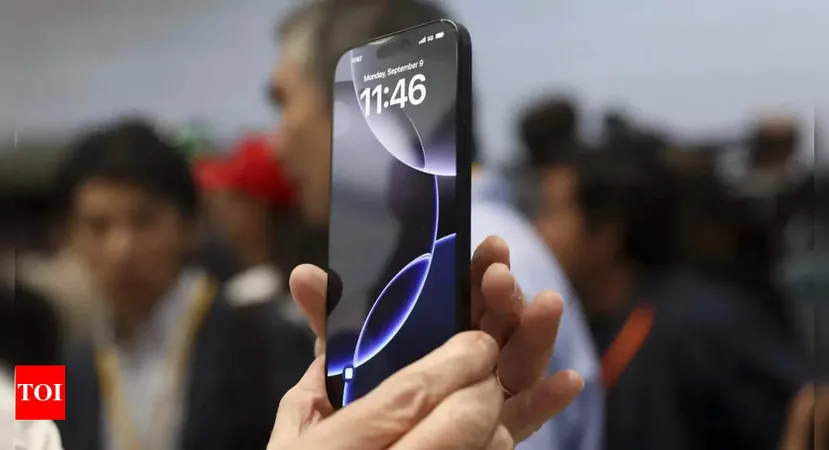
China's Smart Subsidies: A Game Changer for Domestic Brands Against Apple
2025-01-06
Author: Yu
Introduction
In an unprecedented move that could reshape the smartphone market, China has announced a nationwide subsidy program aimed at stimulating consumer spending and boosting domestic brands like Huawei, Xiaomi, and Oppo, potentially at the expense of Apple. As the world's largest smartphone market grapples with economic challenges, these subsidies aim to reinvigorate sales amid a slowdown in consumer demand.
Details of the Subsidy Program
The Chinese National Development and Reform Commission has unveiled plans to broaden trade-in subsidies beyond just household appliances to now include smartphones and various personal electronics. This strategic initiative is expected to enhance the competitive landscape significantly, providing local manufacturers with the necessary support to strengthen their market position against foreign rivals, particularly Apple.
Impact on Apple
Recent data highlights a concerning trend for Apple, with smartphone shipments declining for four consecutive months, culminating in a staggering 47.4% drop in November year-over-year, equating to just 3.04 million units as reported by the China Academy of Information and Communications Technology. During this same period, domestic players have gained traction; notably, Huawei has recorded a remarkable 42% surge in sales within the premium segment since re-entering the market in August 2023. This resurgence underscores a shift in consumer preferences, particularly towards domestic brands that offer competitive alternatives to Apple's flagship products.
Challenges for Apple
Apple's timing couldn’t be more precarious as it struggles with a declining market presence, having briefly dropped out of the top five smartphone vendors in China earlier in the year. Despite an attempt to bolster its foothold through a rare promotional campaign this past week that offered discounts of up to 500 yuan (approximately $68.50) on its latest iPhones, the company's position remains vulnerable.
Government Insights
Yuan Da, deputy secretary-general of the National Development and Reform Commission, pointed out that this government initiative is anticipated to accelerate the shift in consumer preferences, favoring domestic brands. The subsidy program is not just limited to electronics; it also aims to expand into agricultural equipment and other business-related technologies, indicating a sizable commitment to stimulate multiple sectors of the economy.
Previous Programs
Previously, in late 2024, local provinces had initiated smaller-scale trade-in programs, but the national rollout is expected to have a more profound and lasting impact on the smartphone market dynamics. With Apple's sales facing intense competition as local manufacturers thrive, analysts predict that this subsidy program could significantly bolster the market share of brands like Huawei, Xiaomi, and Oppo.
Conclusion
As the Chinese smartphone landscape evolves, consumers will be presented with more enticing choices, pushing Apple to innovate and adapt rapidly in order to remain relevant in this critical market. The battle for dominance in China’s smartphone sector is heating up, and the stakes couldn’t be higher for all players involved. Keep an eye on this developing story as it unfolds!

 Brasil (PT)
Brasil (PT)
 Canada (EN)
Canada (EN)
 Chile (ES)
Chile (ES)
 Česko (CS)
Česko (CS)
 대한민국 (KO)
대한민국 (KO)
 España (ES)
España (ES)
 France (FR)
France (FR)
 Hong Kong (EN)
Hong Kong (EN)
 Italia (IT)
Italia (IT)
 日本 (JA)
日本 (JA)
 Magyarország (HU)
Magyarország (HU)
 Norge (NO)
Norge (NO)
 Polska (PL)
Polska (PL)
 Schweiz (DE)
Schweiz (DE)
 Singapore (EN)
Singapore (EN)
 Sverige (SV)
Sverige (SV)
 Suomi (FI)
Suomi (FI)
 Türkiye (TR)
Türkiye (TR)
 الإمارات العربية المتحدة (AR)
الإمارات العربية المتحدة (AR)